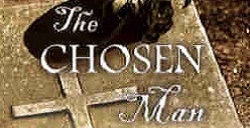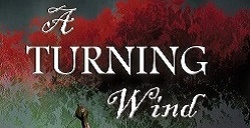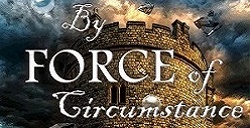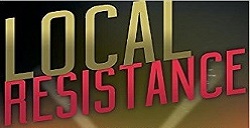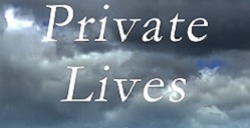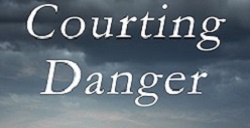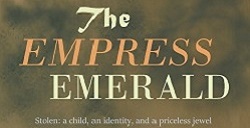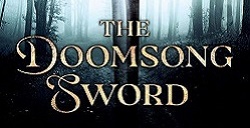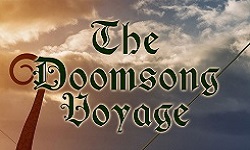
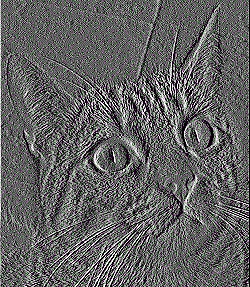



The Cats of Capriale
© by J.G. Harlond
They staggered down the deep steps of the coach as if they'd been at sea for a week. Edna was particularly wobbly, her shorter leg ached terribly and she was close to tears. The driver was far too young and nonchalant to be in charge of such a large machine on precipitous roads. As if to prove her point, he lit a cigarette before she touched terra firma
Suky, first off as always, stepped forward and extended a manicured helping hand then waited while her friend tucked the strap of her bag into the belt of her mackintosh and fumbled with a buckle. Joan, who'd got off behind Suky, sighed and wandered across to the low wall on the other side of the road.
Below, were steep cultivated terraces in shades of willow green and grey; across the valley more mauve and grey mountains and the silvered leaves of olive groves. A group of other holiday-makers lined up beside her and went into the 'oh, lovely' routine.
Joan sniffed and returned to her friends. "I've seen enough views this week to be ruddy expert on 'Italian mountain vistas'. Back to Cornwall next year for me; couple of who-dunnits, cream teas, crab salad if you fancy a change, and no hanging around waiting for oldies who've never been further than Margate. Package tours - everyone doing the same thing, seeing the same sights at the same time. Last time you get me in a package.
"Ready?" Suky said, taking no notice and addressing Edna. She turned to the driver and rattled off some phrases. He replied in a staccato rush then gave her a slow wink. Edna watched Suky swallow a smile of satisfaction. Over fifty - well over fifty - and she could still pull.
Suky turned to her travelling companions, "We've got an hour and a quarter, just right."
"No shops here either, then?" said Joan.
"Bound to be," replied Suky, "people do live here."
Edna let out a heart-felt sigh. There was a steep lane down to the city gate followed by a tortuous climb up low rise cobbled steps to the castle. Was there an alternative? She wasn't staying on the charabanc with that lecherous brat. Perhaps there'd be a café or a bench. Perhaps she could insinuate herself into another group. But then she'd end up having to help someone in a worse state than herself, it had happened before. At least Suky and Joan jollied her along and had a sense of humour, although Joan could be really caustic.
It had been like this at school: Suky got them into scrapes, she tagged along, and Joan tried to get them out of trouble. They shared the punishments. They'd been good scholars though, gone on to successful careers and families. Not Joan, of course. Joan's attitude to men had started young. She hadn't reached the academic heights predicted, either. But it had been her choice. Joan could have made a success of anything if she'd wanted. For the hundredth time, Edna wondered what had made them pals all those years ago. And why she hadn't listened to that inner voice warning her not to get caught up in it again. Why did people creeping into old age want to resuscitate dead friendships anyway?
Suky was waiting just inside the still-functioning portcullis reading a brochure. A vaguely feminine creature in a black cardigan was sitting behind a table. On the table were three piles of brochures in different languages and a black felt witch on a stick.
"Interesting place," said Suky.
Joan wasn't listening, she was watching a gaggle of touring matrons manoeuvre a wheelchair down cobbled steps, its occupant clutching the sides as if she were about to be catapulted off the cliff. "What's wrong with Bournemouth, anyway?" she said
"Now, now," Suky replied, "you won't get anything out of the trip like that."
Edna watched Joan pull a face.
"Rally guides!" laughed Suky, striding ahead, "it'll be dark soon."
"We should've come in July," said Joan, catching up.
"Too hot, October is perfect - nights drawing in, wood smoke - wonderfully evocative."
"Evocative," mimicked Joan, but she fell in beside her friend. Edna hobbled along behind them as best she could.
Suky glanced down at her crib sheet. "According to this, there was a witch trial here in 1577 - the Inquisition. All the women in the village were accused."
"All the women? Who accused them?" asked Edna.
"The men I expect."
"Typical," said Joan.
"What had they done?"
"Nothing!" snorted Joan, "You don't believe that rubbish, do you?"
"No, of course not. But what did the men think the women had done?"
Suky read in silence for a moment then said, "Bad harvests - three years running."
"Harvests?" Edna stared about her at stone walls and narrow streets. "What on earth did they grow?"
"They worked the lower hill terraces - grapes and olives I suppose - then came up here to sleep for safety. That's why there's so many sharp turns and recesses in the streets - because of the wolves coming into the village. It's actually not that different in the modern parts. Remember when we came up from the airport? Miles of fertile land and people crammed together in concrete blocks." Suky had travelled widely, she'd been in Italy before, she knew about these things. "Not many wolves about anymore, thank goodness."
"Plenty of cats," said Joan sniffing.
Edna looked at the tight lane that led up to the castle, aware that it had been moving, very subtly but definitely moving for some minutes. Grey wood smoke and ashes, rolling, billowing out then regrouping, an ominous feline cloud slithered gently but irrevocably down the hill towards them. She stepped closer to Joan, who was saying, "So what happened?" and leaning over Suky's arm to read the brochure.
Suky tapped a scarlet nail on the shiny triptych. "They were tortured - in the castle dungeon, I suppose. Their cries could be heard across the valley, and the men ran away to escape from the noise. Then they were all taken to Genoa and convicted again, except for three girls, who came back."
"I hate cats," Joan said, looking at the felines spreading around them.
Edna started to walk back towards the city gate. Her path was blocked by a huge night-black tom, his yellow eyes fixed on her face. She paused, turned again and looked at her two friends; a low cloud now surrounded them: mink-coated, dust-coated, each creature the hue of gloom and despair. She had to move, get away; she turned back towards the gate but the huge black-coated male was still blocking her way. She straightened her shoulders and glared at it. It glared back. Then very slowly, subtly its yellow eyes flickered sideways indicating the entrance to an alley.
The alley was a stone clad tunnel going down, down, downhill. Sooner or later there'd be a turning; she'd be able to slip back into the piazza as she used to, except it wasn't going to be so easy with so many of them behind her. She followed as instructed, because you couldn't argue with these men. You couldn't make them see sense. You just had to do what they said and stay quiet.
It always seemed a long way to the houses with the stables beneath them. That's where they were going, it was obvious now. Down to where they kept the cows and mules in winter. Down to where few were likely to hear them, and no one would interrupt.
The door was slightly ajar. One of the men from Genoa was standing just behind it. She caught his eye and lowered her gaze modestly, folding her hands in front of her as she had been taught in catechism. Then she stepped into darkness. The only light came from the tiny barred window. It was the first thing she noticed, the barred window, although she'd been here before - plenty of times - under different circumstances. Was that why they'd chosen it? Did they know this was where they used to meet? She bit her lip and straightened her shoulders.
As her eyes became accustomed to the gloom, she realised the stable was full of people, of women: girls in their rough brown workday skirts and bodices; black-haired matrons and grey widows in perennial mourning.
They were all waiting for her, so they could blame her. A palpable sense of excitement mingled with the stink of fear and stale straw. They were going to accuse her here. Perhaps they already had.
Back rigid, hands held before her, Maria Fernandina searched for the Inquisitor. He was standing in the far corner, arms folded under his ornate crucifix. From here she could see his expression. She'd watched him watching the women during the week, seen him lick his lips.
A hand touched the small of her back. She stepped further into the room. There was a shuffling and then she was standing in the centre of a circle. And then they were pushing Susanna into the circle too. Really it was Susanna who'd started it all, making up the steps of the dance, showing them how to stamp on the floor to waken the spirits. But it had only been a dance.
Giovanna pushed past her mother and sisters to join them, shaking her head, sending a warning message to both of them with her eyes: Don't say anything!
Maria Fernandina side-stepped away from her friends then stood motionless waiting for her particular accusation. She was the mal-formed one.
All eyes turned towards her.
"You can't accuse her," Giovanna cried.
There was a hum of muttering.
Giovanna took advantage of the moment. "You'd like to, wouldn't you? Accuse her and get her out of the way. Because she's got one leg shorter than the other, because she's cleverer than all of you. Too clever to be a woman. I've heard men say it. You're frightened of her, and you're frightened of us because we see her for what she is."
Giovanna turned towards the Inquisitor, "That's what this is all about, isn't it? Finding someone to blame for things no one can control - not even your precious God!"
There was a collective intake of breath. Susanna began to cry.
The man with the crucifix raised his left hand, "Tell us then, if you are not to blame, where do we look for answers? Who was the first to raise the spirits? That's what you do, isn't it, drum on the ground like howling pagans and pour virgins' menses over your 'Mother Earth'. If it wasn't this 'clever girl' here that told you about these ancient wicked rituals, who did?"
No one moved, they barely breathed.
Voice raised to the low rafters, the Inquisitor gathered momentum as if he were in a cathedral, "Satan has come among you! It is a known fact Satan preys on girls, who take his seed and spread it among innocent boys so they too become tainted. That's what's happened here isn't it?" He paused and glared at Giovanna, then twisted his head and very softly said, "Hmm?"
Giovanna didn't blink and didn't speak. Slowly, she lifted two hands in the air making the shape of a chalice. She raised the mimed chalice high above her head then brought it down to her stomach and spread both hands over her abdomen, indicating a growing bulge. Now she smiled knowingly at the Inquisitor, "We are full - all three - and the seed is fecund."
Maria Fernandina gasped. It was a lie.
Susanna shouted, "We were dancing, just dancing. Then the boys took it too far, said blood was needed, sacrifices - all those poor kittens."
"We? All of you?" bellowed the Inquisitor, turning back to Giovanna, ignoring the reference to the boys.
"Mary, Martha and Magdalena," screamed Giovanna and gave a fool's harsh laugh.
This, Maria Fernandina understood: they could not torture or condemn a pregnant woman, nor could they touch a woman who was mad. Giovanna was giving her friends time to plan their defence, or escape.
Suky suddenly didn't want to go up to the castle. She reached out for Joan's hand and gave it a squeeze. "Shall we wander back and see if we can get a cup of tea?"
"This place gives me the creeps," Joan said
"I expect we'll find Edna down there. Sneaking off without telling us . . . Not like her."
"Yes it is. She always was a loner."
"Not really, that was you."
"I don't mind my own company," Joan said. "I've never needed to chat about nothing for the sake of it."
"That's why we trusted you with our secrets," said Suky tucking her friend's arm under hers. "Pity we didn't take your advice, it would have saved us a few problems all those years ago, although, poor Edna, there wasn't much either of us could do there. Careful with these steps they're very uneven just here."
"I know," said Edna.
"What's this polenta stuff then?" asked Joan when they were back in the coach. She leaned between the gap in Suky and Edna's charabanc seats. "Sounds disgusting."
"Mashed maize. Soft - got a texture like tapioca or semolina."
"Ugh, school dinners."
"They're a long time gone," said Edna. "We shouldn't try to go back."
"Who wants to go back?" asked Joan in a huff.
Suky gave her reflection in the black coach window a wry smile. "I make a point of never looking back."
Edna and Joan exchanged glances in the same black window, but said nothing.
***
